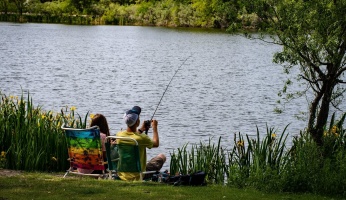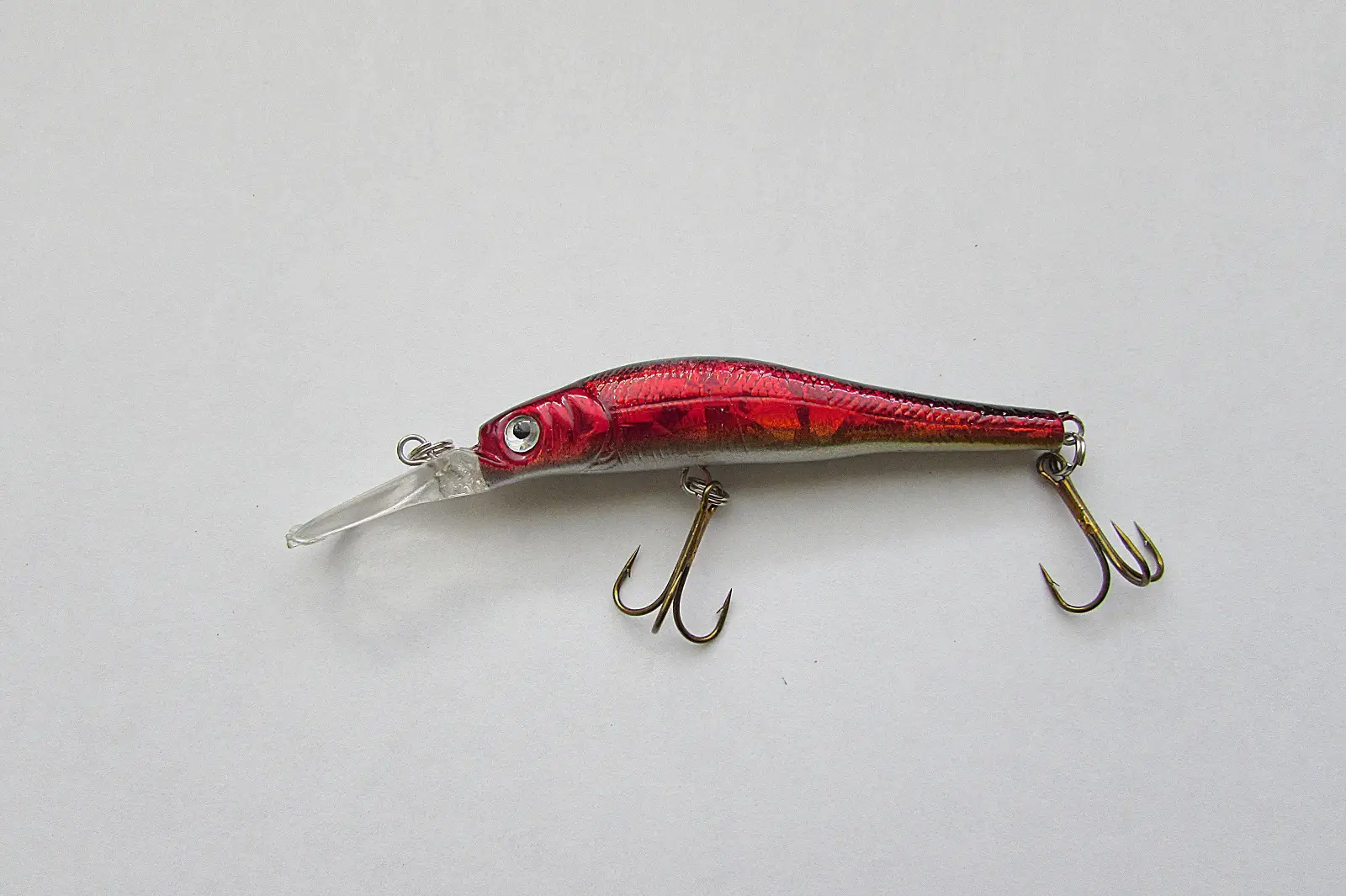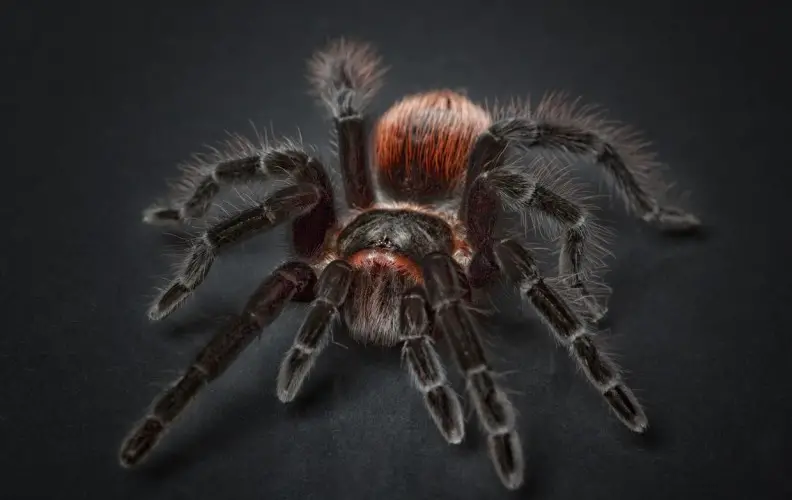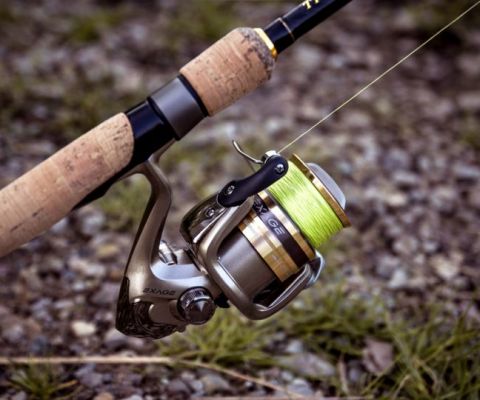Survival Skills: What To Do if An Alligator Attacks
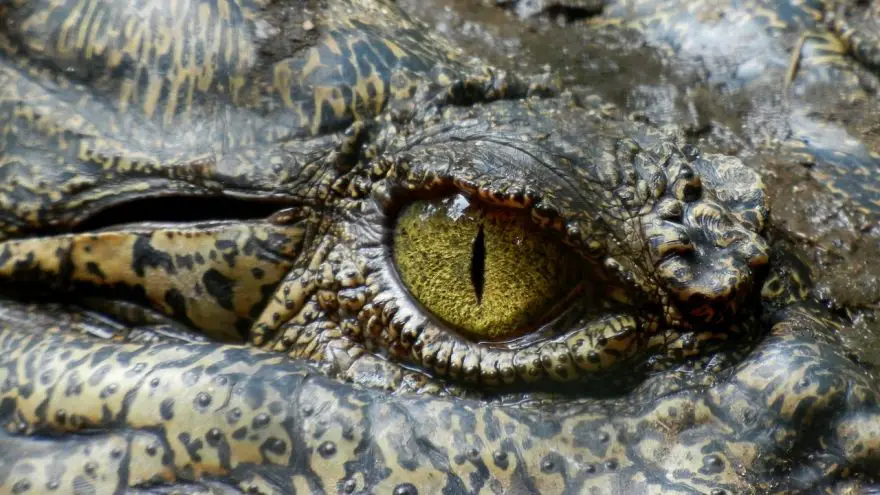 Survival Skills: What To Do if An Alligator Attacks
thegearhunt.com
Survival Skills: What To Do if An Alligator Attacks
thegearhunt.com
You might not think so, but the alligator is sort of like a cheetah when it comes to running. It is fast. You may have seen one stand up on its muscular, long legs and sprint for up to 500 yards to chase prey that is running from it.
What? You haven’t seen anything like that? What you may have seen probably goes something like this – you are standing near a swamp or river, watching the waterfowl, when you suddenly notice a pair of bumps protruding above the water line. Once you notice the sign that says, “Don’t Feed the Alligators”, you make the connection and realize that the bumps you see are actually the eyes of the alligator as he lazily floats in the water. You might be alarmed for a minute, but then you remember the old wives’ tale: You can get away from an alligator by running in a zigzag pattern. This offers you a measure of comfort.
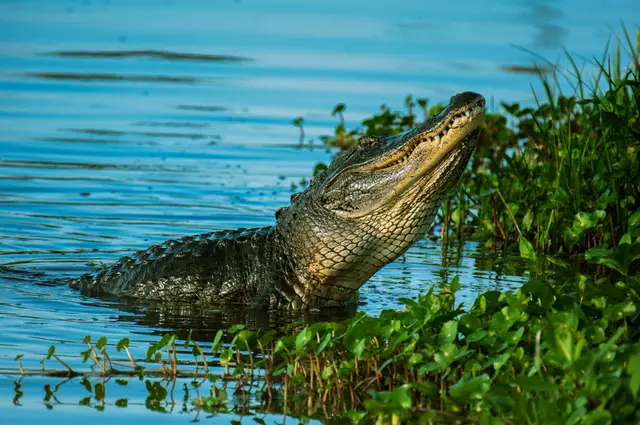
Should it though? This particular saying is so widespread and old that it is nearly impossible to find out when or how it began, and it implies a few things. First of all, it makes you think that alligators will chase you for long distances while you are on dry land. Secondly, it gives you the idea that alligators are faster runners than humans – as long as they are running in a line with no turns.
The fact of the matter is that yes, alligators might be much faster than you thought they were, but they aren’t as fast as cheetahs and they tend to not run for distances that are very far. It is a rare thing for a gator to chase humans on dry land. Aside from that, most humans can run faster than this animal, whether or not they follow a zigzag pattern. Gators max speed is about 11 miles an hour and that speed can’t be maintained for long periods.
More important than that is that chasing prey by running just isn’t the alligator’s style. They prefer sneaking up on their prey while they are in the water. An alligator can swim much faster than it can run. Swimming, they can reach speeds of 20 mph. Also, moving through the water, they are silent. Their eyes are right on top of their heads so that they can swim while taking note of anything happening on the water’s surface. Also, they can stay underwater for long periods of time due to the fact that they are able to hold their breath for as long as an hour.
So, this means that if you run in a zigzag pattern, you could get away from one, and you might not even have to run in that pattern to do so. However, the chances of an alligator chasing anyone while they are on dry land are so slim that the old adage seems to be more of a joke than being helpful advice. It just doesn’t apply.
Why wouldn’t you get chased by a gator, and how would it prefer to attack you?
Alligators Don’t Like Humans as Food
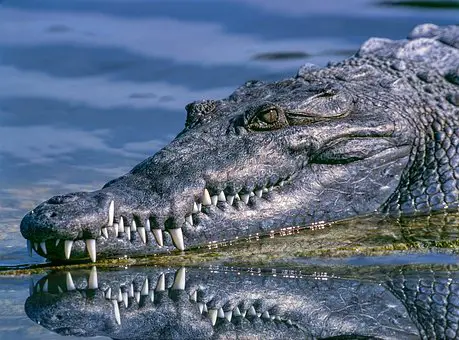 An alligator is not likely to chase anyone for a long distance when they are on land. However, the fact of the matter is that they aren’t likely to attack anyone at all. Alligators tend to prefer easier meals. They are patient when they hunt and have been known to stalk prey in the water for many hours before they attack it. However, once they begin the attack, they don’t seem to want to work too hard at it. Also, they tend to not attack prey that will take more than a single gulp to swallow. Even larger gators will generally go for prey that is small, and this is good news for adult humans.
An alligator is not likely to chase anyone for a long distance when they are on land. However, the fact of the matter is that they aren’t likely to attack anyone at all. Alligators tend to prefer easier meals. They are patient when they hunt and have been known to stalk prey in the water for many hours before they attack it. However, once they begin the attack, they don’t seem to want to work too hard at it. Also, they tend to not attack prey that will take more than a single gulp to swallow. Even larger gators will generally go for prey that is small, and this is good news for adult humans.
Most of the population of alligators consists of small alligators. Ones that are less than about 5’ long will have a diet made up of small turtles, snakes, and crawfish. They really aren’t even a threat to smaller dogs. These small alligators pose no threat to people and typically won’t attack them under normal circumstances.
At times, people have been known to think that small alligators, those smaller than 3’ long, will make good pets. In fact, attempting to catch one of these creatures is typically the most common reason people are bitten by them. Even smaller gators have more than 80 teeth that are razor sharp. Bites from these gators might not be ones that are life-threatening, but if you get bit, you will still need to go to the hospital.
Large gators aren’t as prolific, but they pose more of a threat to humans because they are large enough to look at us as a substantial meal. Fully grown gators that are as large as 11’ can weigh as much as half a ton. Even though gators of this size are a threat to us, they still tend to be cautious of us. They tend to prefer to avoid us completely. When people see gators snapping their jaws and/or growling, they get the idea that the creature is preparing to attack, when in fact, this is simply defensive posturing.
Are you still thinking that gators hunt humans? Just take a look at the numbers. In the US, there are typically about 5 gator attacks each year. This is despite the fact that in Florida, each year there are more than 12,000 complaints about them. Do you need another number? In the past 70 years, the Fish and Wildlife Conservation Commission has only received reports of 356 humans being attacked by this reptile. Of those, 25 were fatal, and 9 of those were dead before the gator decided to eat them.
That said, there is an exception for every rule, correct?
Alligator Facts
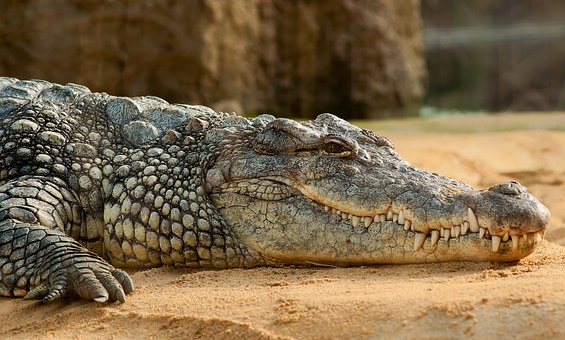 Alligators will not overturn a boat to catch prey. At times, people paddling kayaks or canoes have overturned their own boats once they scraped an alligator’s back in the water that was shallow, but that wasn’t exactly the alligator’s fault.
Alligators will not overturn a boat to catch prey. At times, people paddling kayaks or canoes have overturned their own boats once they scraped an alligator’s back in the water that was shallow, but that wasn’t exactly the alligator’s fault.
Additionally, alligators aren’t known for snatching people from their boats. If you see a gator right at the edge of the water and he glides in and beelines for your boat, it can be quite a scary thing. However, it isn’t always what it seems to be. Alligators are just more comfortable in the water than they are on land, so when a running boat startles them while they are getting some sun, they will instinctively return to the water.
If You are Attacked by a Gator
So, from what you have read this far, you know that you won’t get ran down by a gator right on the street. They will try to sneak up on you if you are in the water. Even though for the victim it can be a terrible surprise, the attack style of a gator is really very predictable. It will bite down on its prey and go into a death roll. This is where the animal rolls over again and again until the prey has died, most of the time by drowning, but sometimes from losing too much blood.
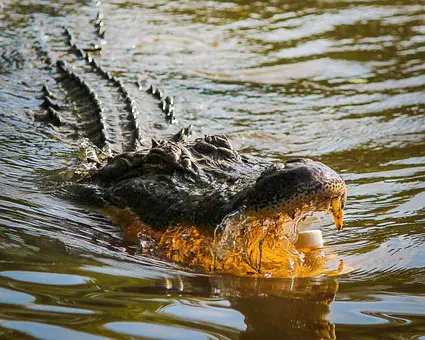
Once their prey is dead, the gator will get it positioned in its mouth so that it can just gulp it down. Their massive jaws that are so good at hanging onto the prey, also make it difficult for them to chew and swallow. Because of this, large prey can be problematic for them. If they are going to eat something sizable, they have to rip it to pieces to swallow it and they don’t like to do that.
If you believe that one of these creatures is approaching you, just run. You can zig zag if you like or just run straight ahead. You should easily be able to outrun one. Even if it is gaining on you, you shouldn’t panic. They have only a small bit of endurance, and they don’t care to chase their food. If it misses at its first chance to get you, it will generally move on to its next victim.
If you happen to be caught unaware in the water or on its edge, the scenario that is more likely, you will have less of a chance to avoid it. If it is in the water, the advantage goes to the gator. And you are right where it wants you. This means that an attack in the water is a worst-case scenario. When you feel the jaws of a gator snap shut on you, you need to resist. You shouldn’t waste any time attempting to get its jaw open because this is next to impossible. What you should do is splash, scream, and attempt to confuse the gator as much as you can. If you can get a chance, drive your fingers or thumbs right into the eyes. The eyes are the area on a gator that is most sensitive, and the combination of surprise and pain might be just enough to make him release you.
On occasion, a gator that is in a bad mood might not quit fighting. If this happens, it is time to play dead. An alligator will release prey that is dead in order to get it positioned for swallowing. This can be just the chance to escape you need. It is quite risky though, and if you are in the water, you need to do whatever you can to prevent the death roll.
Staying Safe in Gator Country
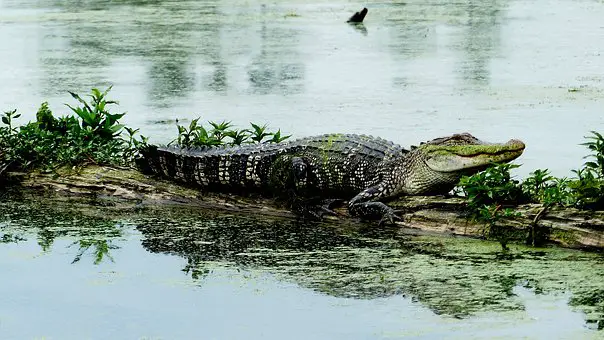 Just because gators don’t tend to like humans for their dinner, that doesn’t mean that we can just go on our merry way and ignore them when we spot them. If you are vacationing or live in gator country, there are a few ways that you can decrease the chances of unpleasant encounters.
Just because gators don’t tend to like humans for their dinner, that doesn’t mean that we can just go on our merry way and ignore them when we spot them. If you are vacationing or live in gator country, there are a few ways that you can decrease the chances of unpleasant encounters.
Many of the humans that gators attack are smaller children who happen to be playing or wading in the water while not being supervised by adults.
An alligator might attack because he is hungry, but that isn’t typically the reason that is the most common. Humans continuously encroach on the habitats of wildlife and this reduces the natural food sources for gators. Because of this, it is expected that attacks of this nature will increase. There are 2 main causes for alligators to attack humans. They are because the gator is angry, or when it is protecting its territory.
Adult males are very territorial during their mating season. This is during the summer. If one feels startled or threatened, he might attack. Females with young might attack if she thinks you are a threat to her babies. In fact, as mentioned above, attacks occur most often when people try to catch these small alligators. They might not realize that a protective mother is watching them.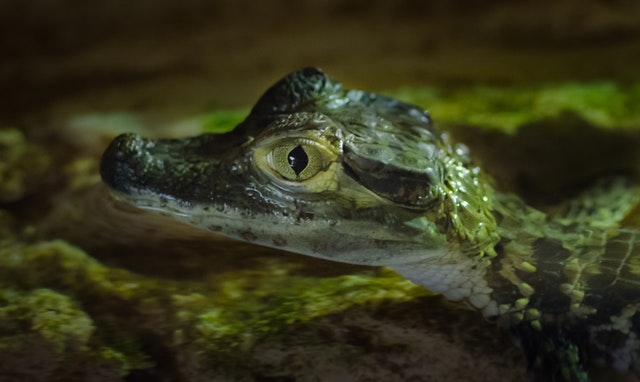
Attacks also happen when people tease the creatures. Throwing rocks or sticks at them might seem to be relatively harmless, but it can create a dangerous situation quickly.
So, how can you have a good time in an area where there are gators? Try to only swim in places where there is clear water and well-groomed banks. Gators might just be lurking in water that is murky and where the banks have a lot of brush and/or weeds. It doesn’t matter how inviting the water may seem, it only makes sense to stay away from it when the alligators are at their most active. Typically, a gator will feed when the sun is going down and throughout the night, but they can still be active when the sun comes up too.
If you happen to have smaller pets or children with you, you need to keep them away from the edge of the water. Only let them into the water when you or some other adult is there to watch them. Also, if you have been fishing, never clean the fish at the edge of the water or throw any discarded parts back into the water.
Lastly, if you spot a gator, get yourself and everyone else out of the water immediately. Warn the others around you and regardless of its size, don’t try to capture, feed, or pet it. By remembering and following these tips, you won’t need to worry about running down a hill, up a tree, or in a zigzag pattern to get away from one.







